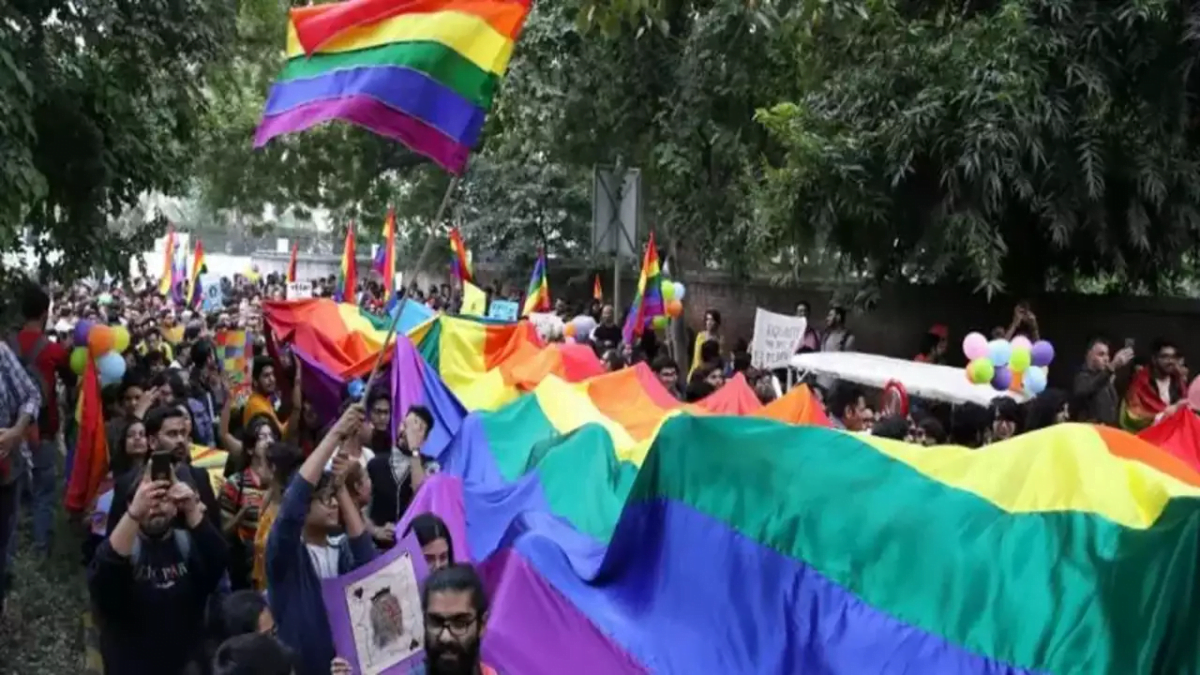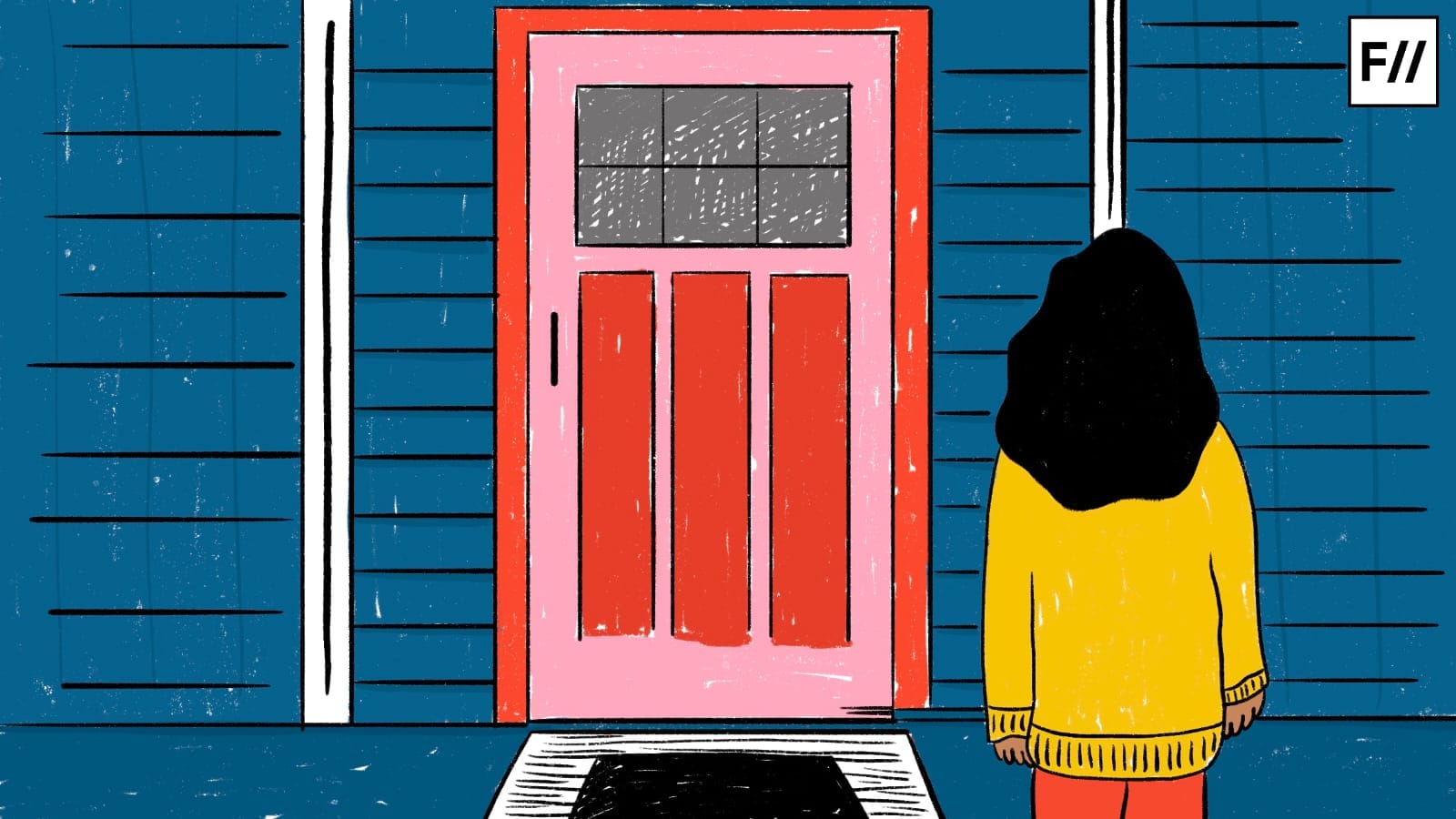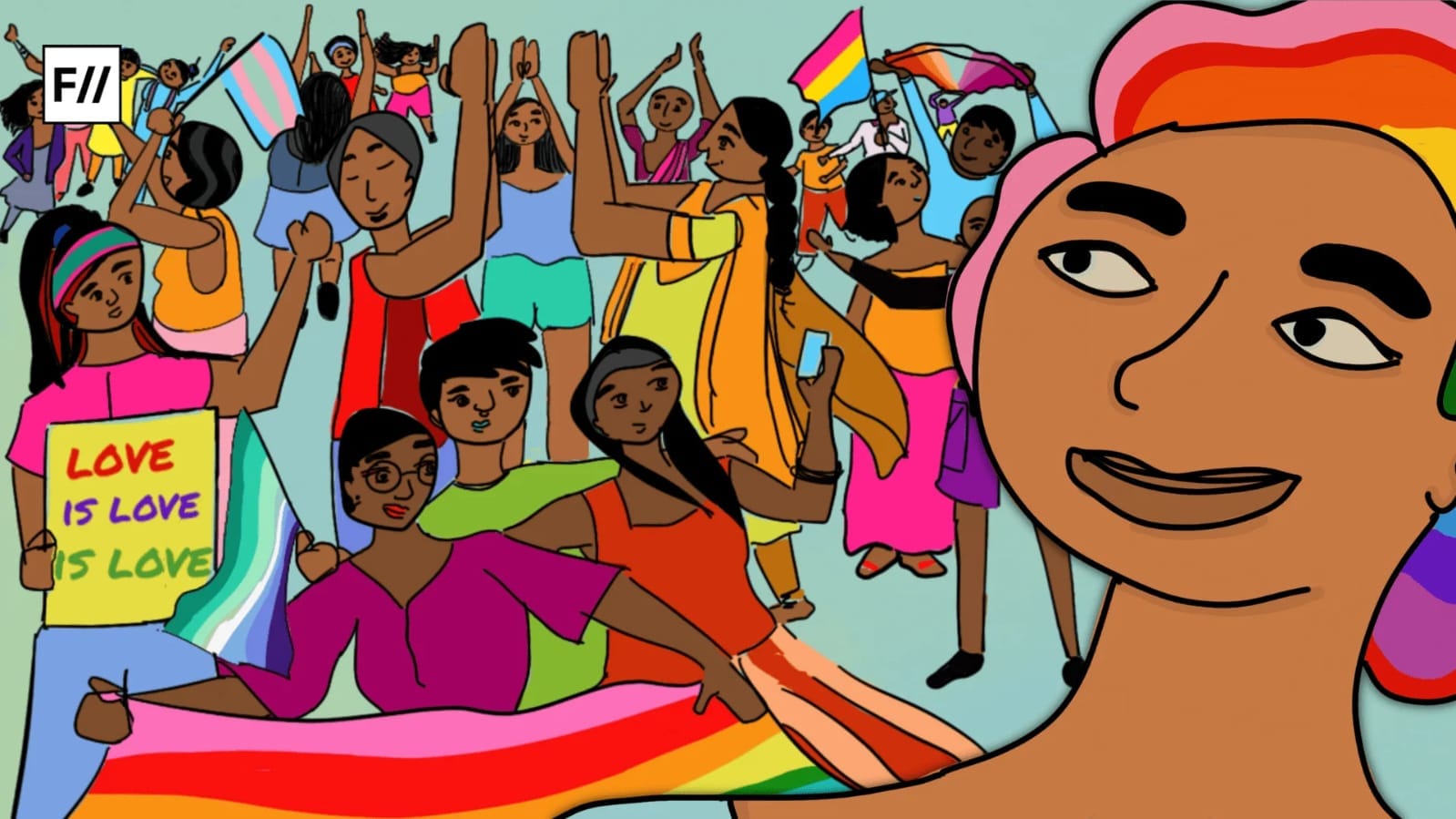The Kolkata Rainbow Pride Walk returned last Sunday once again, with love, resistance, pride, and a flourish of beautiful colours and artful posters. The walk began from Park Circus Maidan, at the heart of central Kolkata, and skirted around the main roads of 7 Point Crossing, St. Xavier’s College, and marched through Park Street More.
The history of Kolkata Pride
Kolkata’s Pride Walk is not only India’s but also one of Asia’s oldest Pride Walks. It dates back to 2nd July 1999, when barely fifteen participants, coming from different cities of India such as Bangalore, and Mumbai, gathered in Kolkata. And then, despite having no recognition, awareness, or any semblance of legal protection, they dared to walk in protest and solidarity. It was called The Friendship Walk. Kolkata’s rich history of struggles and resistance for political rights and movements led queer people to choose it as an ideal place to start the Walk.
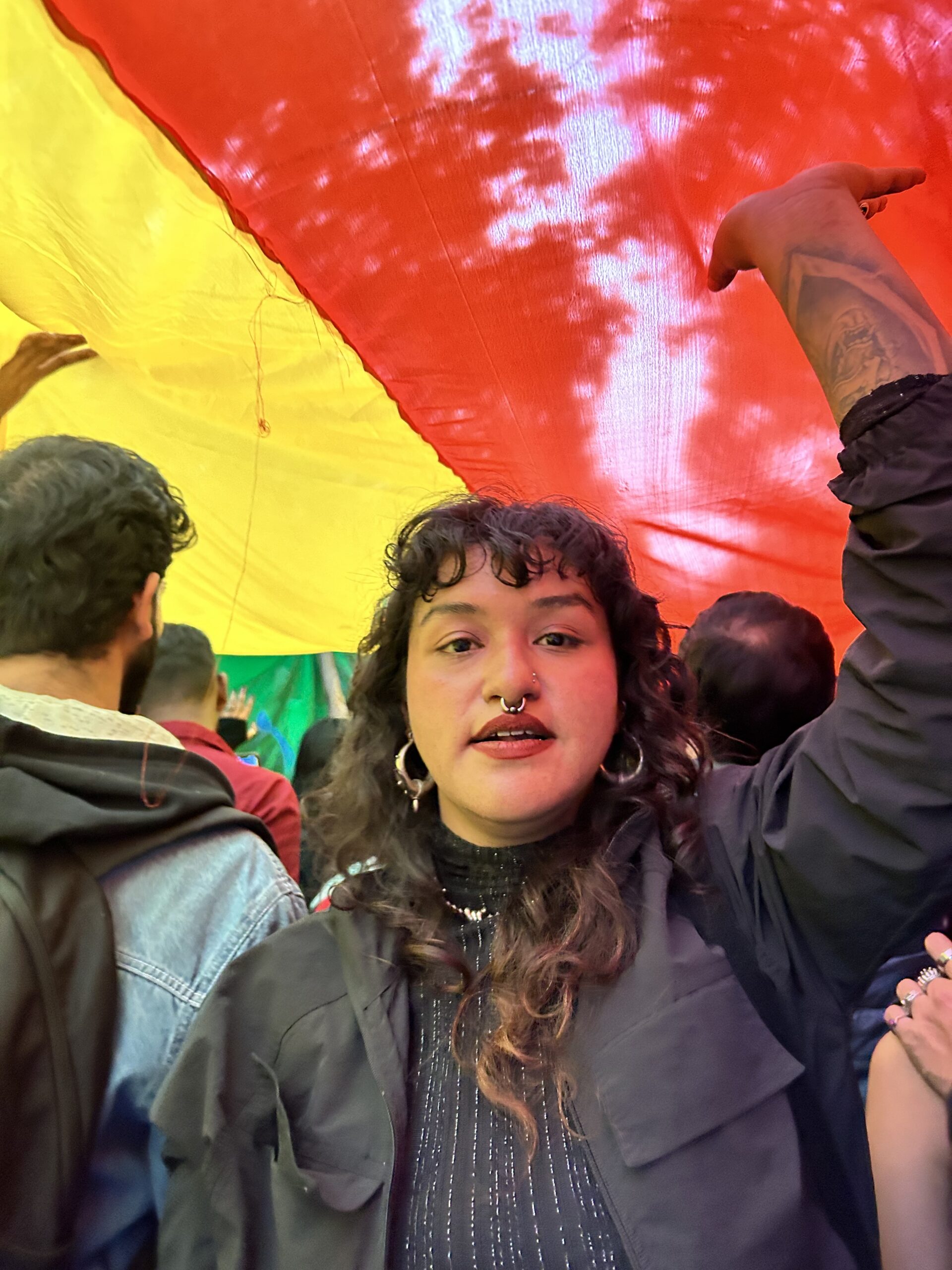
Kolkata carries the legacy of The Friendship Walk with pride and honours it every year with growing awareness and visibility. While it is true that we have come a certain way from where we had started, the 2023 Kolkata Rainbow Pride Walk served as a reminder that we still have a long way to go.
While it is true that we have come a certain way from where we had started, the 2023 Kolkata Rainbow Pride Walk served as a reminder that we still have a long way to go.
December is known as the Kolkata Pride Month, with festivities and events scattered throughout the month. From queer sporting events at Queernival in Maddox Square, a Fundraiser Ball at The Lalit Great Eastern and a musical night at The Tavern to health camps, Queer Arts Events and a postering and sloganeering workshop at Porshi Qanteen, this Kolkata Pride Month had a bit of everything.
The Kolkata Rainbow Pride walk took place on 17th December from 2 PM. This year, Kolkata Pride saw a large number of participants taking to the street and joining the march. At the forefront, a moving stage ir a ‘float’ was set up at the back of a truck where organisers hoisted flags and invited performers to dance and sing their hearts out.
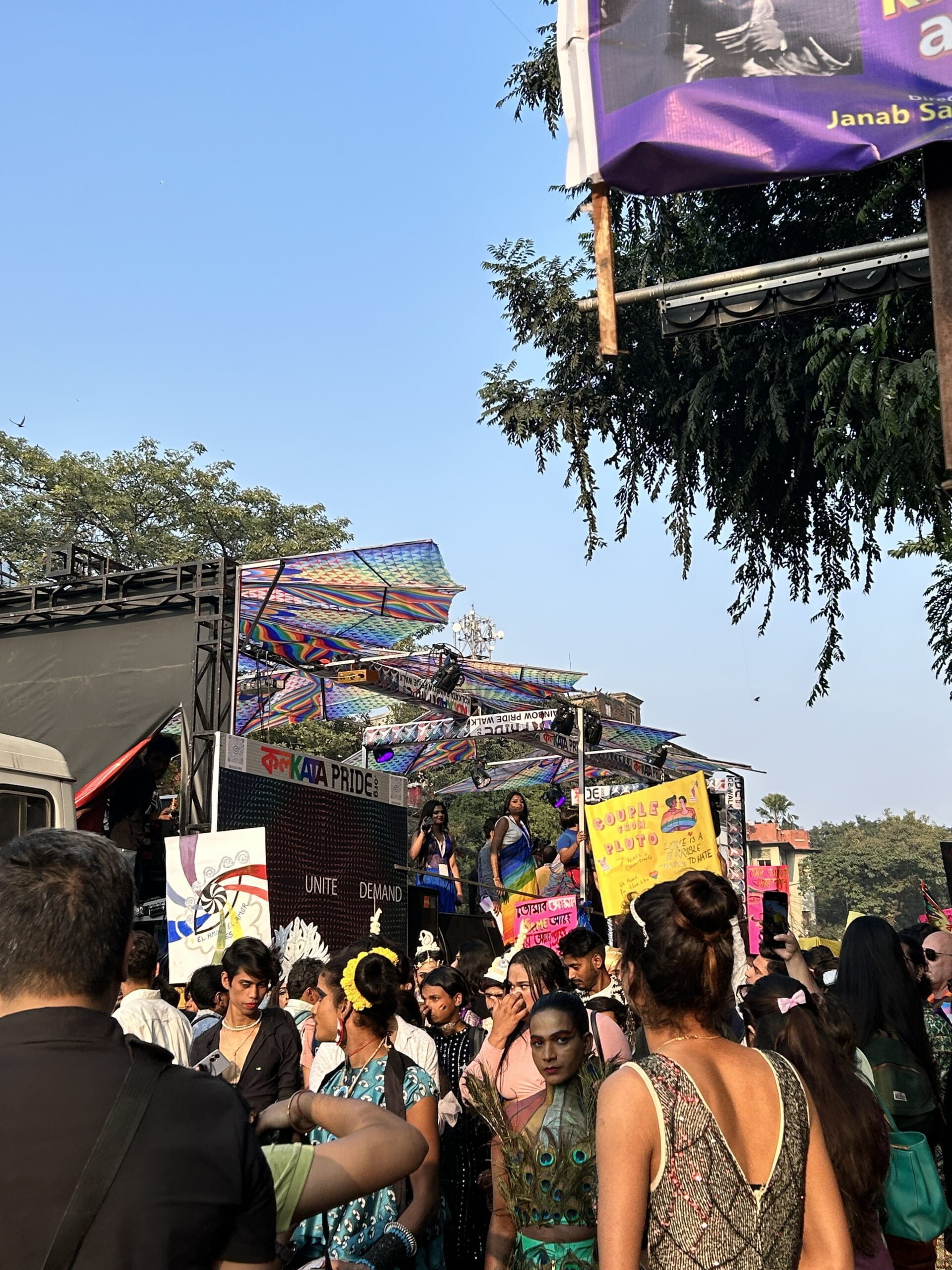
The participants gathered behind the platform and held up above their heads yards and yards of the seven colours of the pride flag. Tens of thousands joined the walk, extending long behind the flag.
Staying true to the essence of the city, there were several auto-rickshaws decked with rainbows and streamers trudged along behind the March. Elderly people availed of those as it helped them to become a part of the march without straining themselves physically.
People from abroad, and other states also joined the march, and photographers lined up to document the moment as it was history itself in the making.
People from abroad, and other states also joined the march, and photographers lined up to document the moment as it was history itself in the making.
Pride as a ground of resistance against the Palestinian genocide
In the wake of the ongoing genocide of Palestinians, Kolkata Pride became a space for protest and resistance. The organisers announced, ‘In our unwavering commitment to justice, we stand in unconditional support of Palestine, condemning genocide, war, and occupation. This place is not just inclusive, it is also a platform for change, striving towards an inclusive future after all.’ Some of the posters and banners read ‘Free Palestine’, ‘Injustice anywhere is a threat to justice everywhere’, drawing attention to the occupation, ethnic cleansing, and genocide of the Palestinian people.
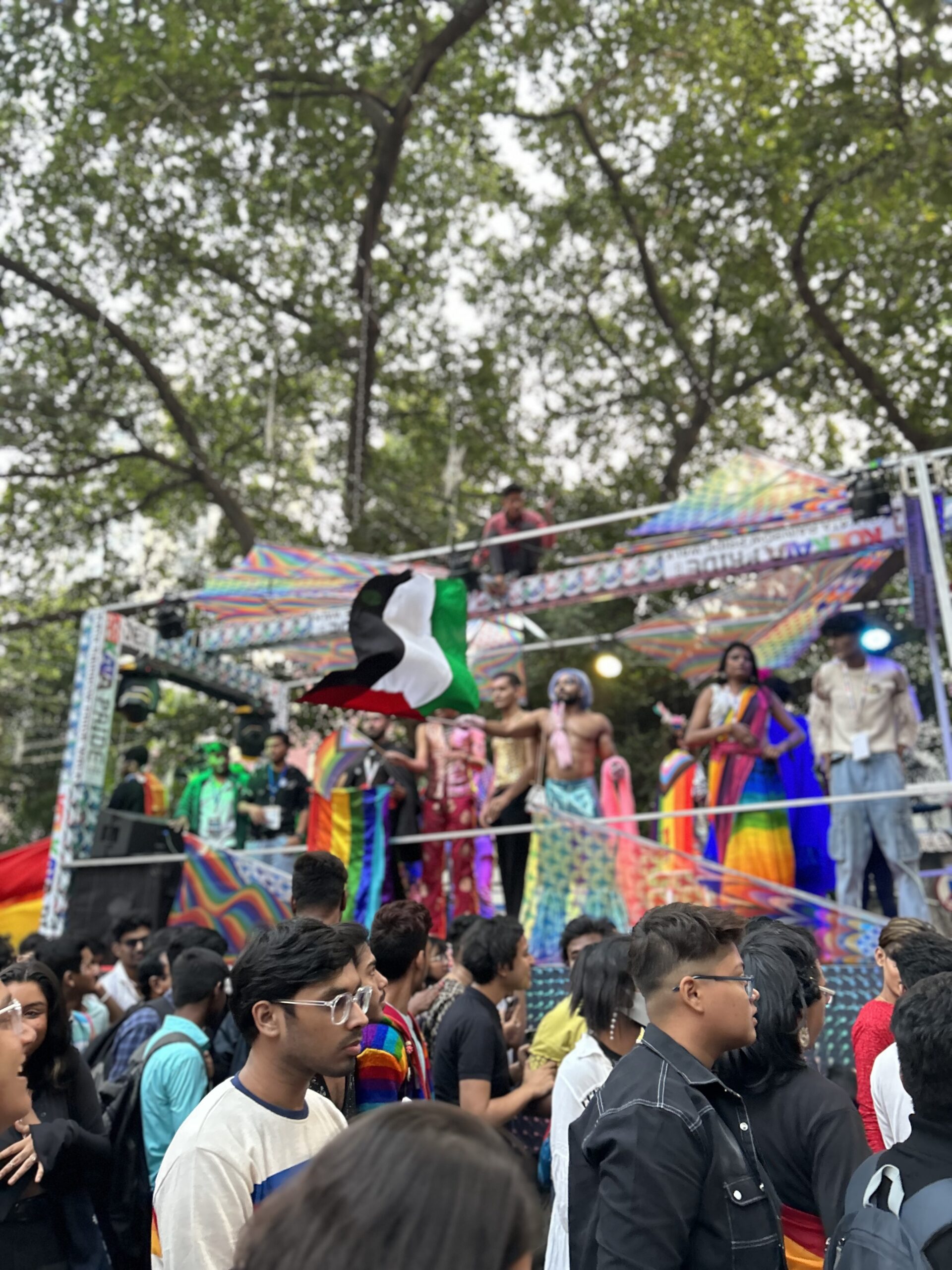
Many participants showed up to the march in a keffiyeh, the traditional Palestinian scarf, as a symbol of protest. People chanted for a permanent ceasefire and an end to the genocide.
Marching in memory of Arvey and Pranshu
People also walked in memory of Arvey Malhotra, who faced inhuman bullying and sexual assault in his school, DPS Faridabad, and unable to cope with the trauma, died by suicide. People also remembered Pranshu through their chants- a teen queer makeup artist from Ujjain, who faced bullying and harassment in the online space, which forced them to end their life.
Through the slogans, posters, and chants, people at the pride pledged themselves to fight for a future that would not be so cruel to queer children and allow them to grow up with dignity and love.
Pride provides a platform that is free from class, caste, racial, and ethnic discrimination, and affords everyone to advocate for their rights. There were also chants for a trans-inclusive future.
Pride provides a platform that is free from class, caste, racial, and ethnic discrimination, and affords everyone to advocate for their rights.
Some people also showed up in condemnation of ableism and fluency culture, which discriminates against people with speech-related disabilities. Participants joined in wheelchairs as well and marched with the others.
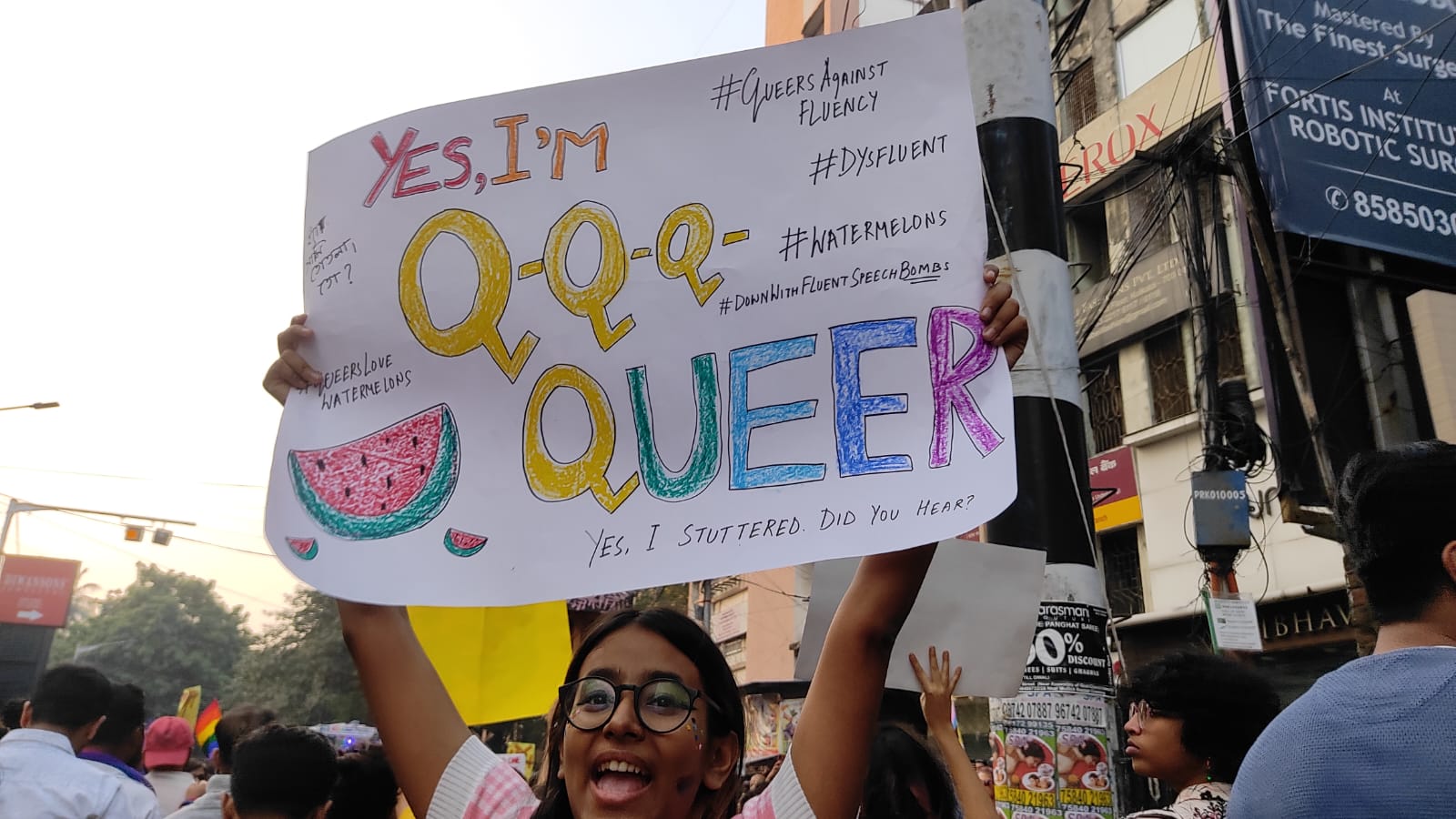
Slogans were also raised that pointed out hypocritical and homophobic judgements of the Supreme Court that refused to grant queer people the right to marry, adopt children, or own property in a joint partnership.
Music and dance as a way of resistance and celebration
Amidst chants and slogans, Sahana Bajpaie’s sweet voice rang through, singing ‘Amar haat bandhibi, paa bandhibi, mon bandhibi kemone?’ (translating: you can tie my hands and legs, but you can’t tie my soul), voicing the sentiment of resistance that remains ablaze through any and all celebration of Pride.
Participants grooved and danced their hearts out to songs by Tagore, local Bengali songs, and rhythmic Bollywood songs occasionally, in between chants. Participants showed up in their most colourful and true selves, wearing clothes that transcended all gender norms and boundaries.
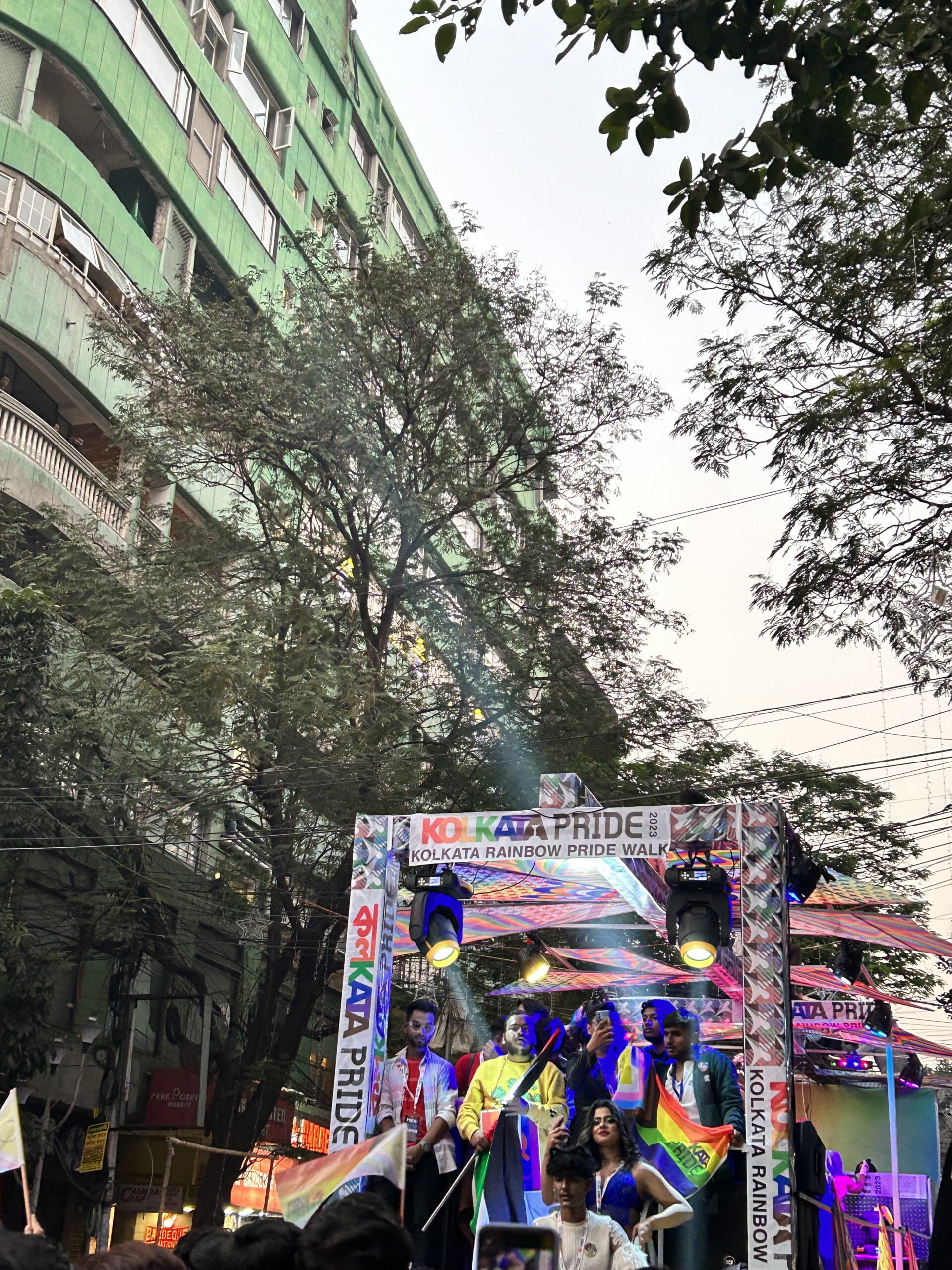
As the crowd approached Park Street more, it was a moment of political and social visibility, taking up space in a non-normative way in the city’s most elite, and exclusive area. In front of Trincas, people danced to Usha Uthup’s iconic tunes as it served as a throwback to the very place where the singer had once started her career.
Finally, the march came to an end and dispersed in the Maidan area. Performers ended the walk with political chants of Azadi- freedom from all persisting evils in our society, from casteism, transphobia, and queerphobia to male chauvinism, right-wing orthodoxy, and normative culture around the world.
Performers ended the walk with political chants of Azadi- freedom from all persisting evils in our society, from casteism, transphobia, and queerphobia to male chauvinism, right-wing orthodoxy, and normative culture around the world.
Organisers thanked the Kolkata Police for managing the crowd and the traffic around the city smoothly and patiently. Local people also watched in awe, sometimes with confusion, but often joined the group in their quest for visibility and spirit of celebration.
The Kolkata Rainbow Pride Walk of 2023 served as a reminder that to be queer is to not only exist outside the mainstream or what is deemed as the norm, but to reject the norm, to establish, and to recognise with dignity and respect, every way of loving, living, and existing.
About the author(s)
Debabratee (she/they) is a student of English Literature at Jadavpur University. When they are not found reading or writing, they are found running after their pet dog and cuddling with him. They are avid binge-watcher of all kinds of OTT content and like to dissect and analyse them in their free time.
